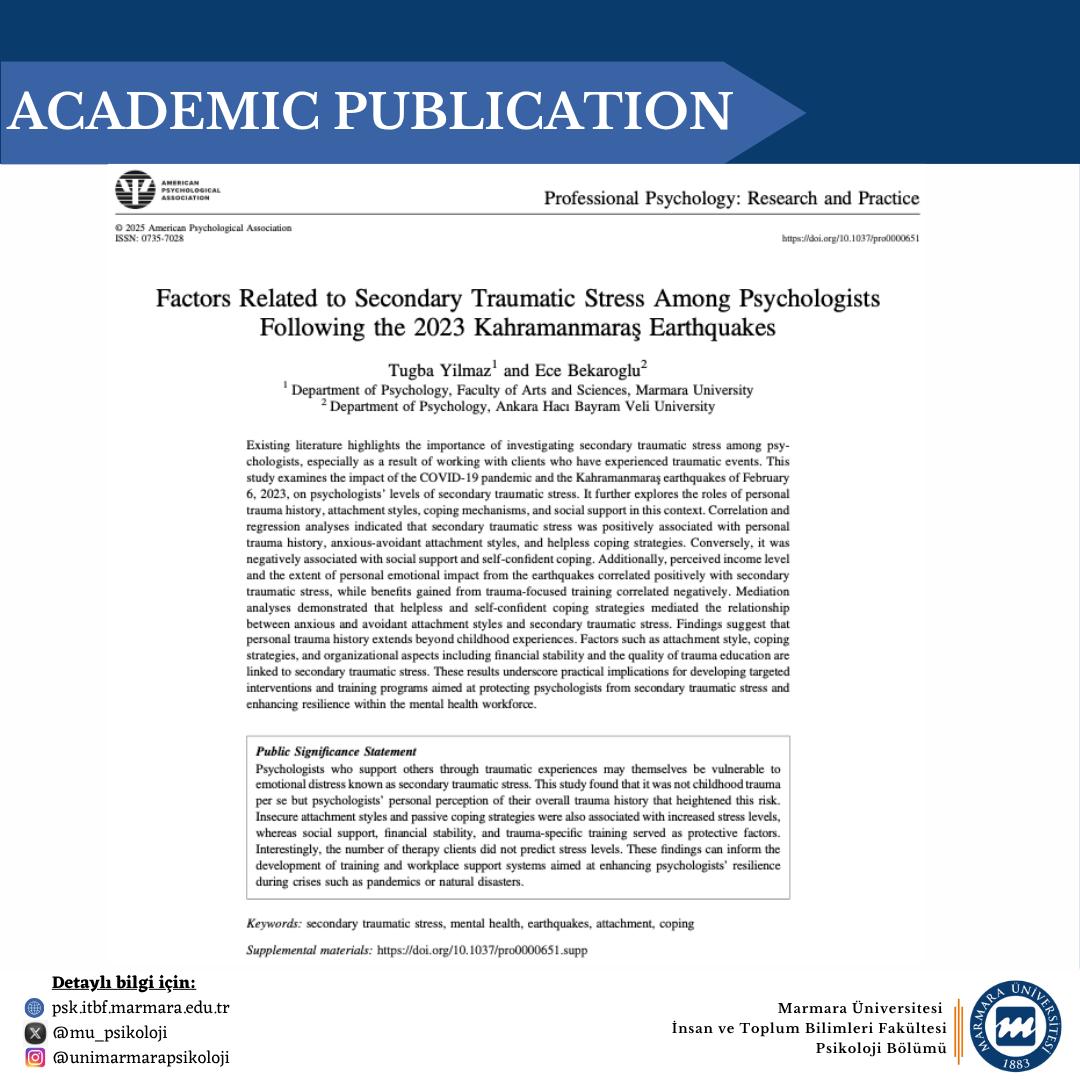
Our department professor, Assoc. Prof. Tuğba Yılmaz’s study with Assoc. Prof. Ece Bekaroğlu was published in the journal Professional Psychology: Research and Practice.
Existing literature highlights the importance of investigating secondary traumatic stress among psychologists, especially as a result of working with clients who have experienced traumatic events. This study examines the impact of the COVID-19 pandemic and the Kahramanmaraş earthquakes of February 6, 2023, on psychologists’ levels of secondary traumatic stress. It further explores the roles of personal trauma history, attachment styles, coping mechanisms, and social support in this context. Correlation and regression analyses indicated that secondary traumatic stress was positively associated with personal trauma history, anxious-avoidant attachment styles, and helpless coping strategies. Conversely, it was negatively associated with social support and self-confident coping. Additionally, perceived income level and the extent of personal emotional impact from the earthquakes correlated positively with secondary traumatic stress, while benefits gained from trauma-focused training correlated negatively. Mediation analyses demonstrated that helpless and self-confident coping strategies mediated the relationship between anxious and avoidant attachment styles and secondary traumatic stress. Findings suggest that personal trauma history extends beyond childhood experiences. Factors such as attachment style, coping strategies, and organizational aspects including financial stability and the quality of trauma education are linked to secondary traumatic stress. These results underscore practical implications for developing targeted interventions and training programs aimed at protecting psychologists from secondary traumatic stress and enhancing resilience within the mental health workforce.
